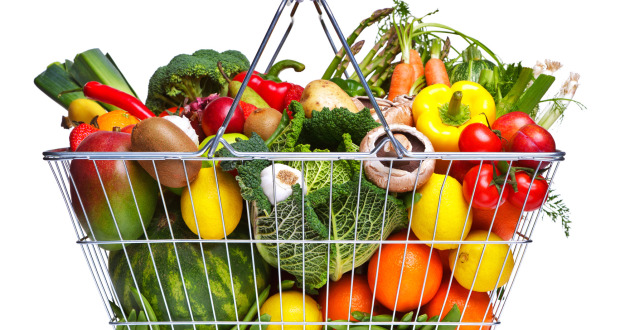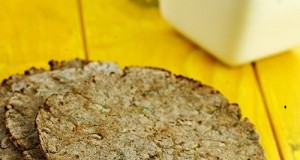 The fresh fruit and vegetable department can be one of the brightest and most eye-catching departments of the grocery store. But make sure you know how and what to buy.
The fresh fruit and vegetable department can be one of the brightest and most eye-catching departments of the grocery store. But make sure you know how and what to buy.
The fresh fruit and vegetable department can be one of the brightest and most eye-catching departments of the grocery store.
It’s usually positioned at the entrance of the shop and many customers choose a grocery store on the quality and variety of the fruit and vegetables available. You can buy a brand name of breakfast cereal in any store, but fruit and vegetables are perishable products that have to be fresh.
What to look out for
Fruit and vegetables are an essential part of a nutritious and healthy diet. At the same time, the health benefits of many fruit and vegetables are comprised by consistent contamination with combinations of pesticides classified as probable human carcinogens, toxic nervous system poisons, and endocrine (hormone) system disrupters.
One solution is to buy certified organic produce, but this is simply not a viable option for the vast majority of families. Organic foods are generally more expensive and not always available.
Luckily, one can reduce the harmful effects of pesticides by simple washing the fruit and vegetables thoroughly before using them. Thanks to the great strides made in the produce industry, most of the vegetables on today’s markets are of good quality.
8 vegetable buying tips
1. Buy in season.
Vegetables are usually at their best quality and price at the peak of the season.
2. Look for freshness.
Check for characteristic signs of freshness such as bright, lively colours and crispness.
3. Handle with care.
Some vegetables are harder than others, but handling your vegetables with care can prevent bruising and damage.
4. Don’t buy just because of low price.
Take into account the amount that you would be wasting. Don’t buy in bulk – the nutrient content will decline as the vegetables become older.
5. Avoid decay.
It is penny foolish to buy fresh fruit and vegetables affected by decay. Even if you trim off the decayed area, rapid deterioration is likely to spread to the salvaged area. To pay a few cents extra for fruit and vegetables that are in good condition is a good investment.
6. Buy locally grown products.
They are normally fresher and less expensive.
7. Use markdowns the same day.
Local shops often mark fruit and vegetables down before they have to throw them away. Use them the same day, but don’t be tempted to buy a lot of them, as they will go off.
8. Buy onions, butternuts, ginger and chilli.
These veggies are generally cheap and will definitely add a bit of zing to your cooking.
Source: health24.com
 Mithila.net Mithila.net, Easyrecipes, Way2Foodie, Way2Foodie.com, Non Veg Recipes, Veg Recipes, Veg Recipe, Veg Recipes, Andhra Recipes, South Spicy Recipes, Vantillu, Kitchen, Indian Recipes, Telugu Recipes,
Mithila.net Mithila.net, Easyrecipes, Way2Foodie, Way2Foodie.com, Non Veg Recipes, Veg Recipes, Veg Recipe, Veg Recipes, Andhra Recipes, South Spicy Recipes, Vantillu, Kitchen, Indian Recipes, Telugu Recipes,



